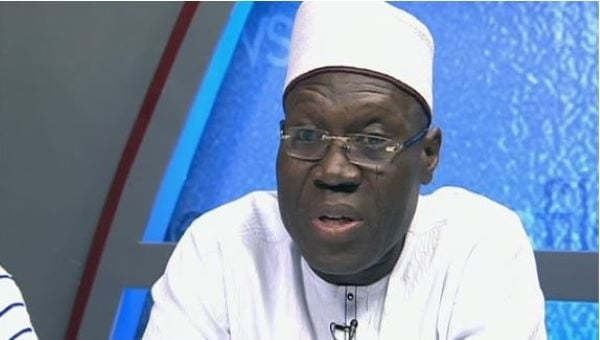Former Member of Parliament for Tamale Central constituency, Inusah Fuseini, has voiced significant concerns regarding a recent Supreme Court decision that stayed a ruling made by Parliament’s Speaker, Alban Bagbin. Speaking on a discussion platform, Fuseini described the court’s action as “hasty,” questioning the integrity of the legal process involved. He highlighted the considerable implications of the Supreme Court’s ruling, suggesting that the circumstances warrant a careful deliberation rather than a swift judicial intervention. The fact that an application was submitted to the Supreme Court for interpretation of Article 97-(1)(g) of the Constitution prior to the Speaker’s ruling raised further questions in Fuseini’s mind regarding why the court prioritized this particular matter, responding in as little as 24 hours.
Fuseini criticized the court for not allowing Parliament, and more specifically, the Speaker, enough time to present their case before acting. He argued that fairness dictates that the Speaker be given the opportunity to outline why the Supreme Court should not impose a stay on his ruling. The rapid progression of the Supreme Court’s action, especially without notifying the Speaker, was deemed problematic. Fuseini contended that it is vital for the principle of fair hearing to be upheld in judicial processes, and posited that the court’s actions undermined this principle by not giving the Speaker a voice in the crucial matter.
The reasoning behind the Supreme Court’s decision was predicated on claims that the Speaker failed to afford fair hearings to four MPs. This posed an apparent contradiction, as Fuseini pointed out, where the court criticized the Speaker for not allowing due process while simultaneously issuing its verdict without first hearing from him. This incongruence raised concerns regarding judicial fairness and led Fuseini to challenge whether the court’s actions aligned with the legal standards it seeks to uphold.
In discussing the interpretation of Article 97-(1)(g), Fuseini noted that while the Supreme Court affirmed it had jurisdiction over interpretations of the Constitution, the Speaker was not attempting to contravene this authority. Instead, he was exercising his role by applying established precedents from earlier rulings, including one by former Speaker Mike Oquaye. Fuseini argued that the Speaker’s actions did not amount to an overreach of judicial interpretation; rather, they reflected a well-informed understanding of parliamentary procedures consistent with his legal background.
In expressing his disappointment with the Supreme Court’s decision, Fuseini warned that such interventions could contribute to perceptions of political bias within the judiciary. He suggested that rather than issuing an immediate stay of action, a more prudent approach would have entailed a thorough hearing of the entire case. This would provide much-needed clarity on the interpretation of the pertinent constitutional article without compromising the perceived independence of the court.
The controversy encapsulated in this case not only reflects tensions between the judicial and legislative branches but also raises broader questions about the balance of powers within the government. Fuseini’s remarks illustrate a critical viewpoint on how such rulings can influence public trust in institutions, stressing the importance of maintaining a judicial system that is free from political influence and capable of ensuring equitable treatment for all parties involved. This situation underscores the necessity for both the judiciary and Parliament to navigate their roles harmoniously to prevent escalated conflicts punctuating constitutional governance in Ghana.


